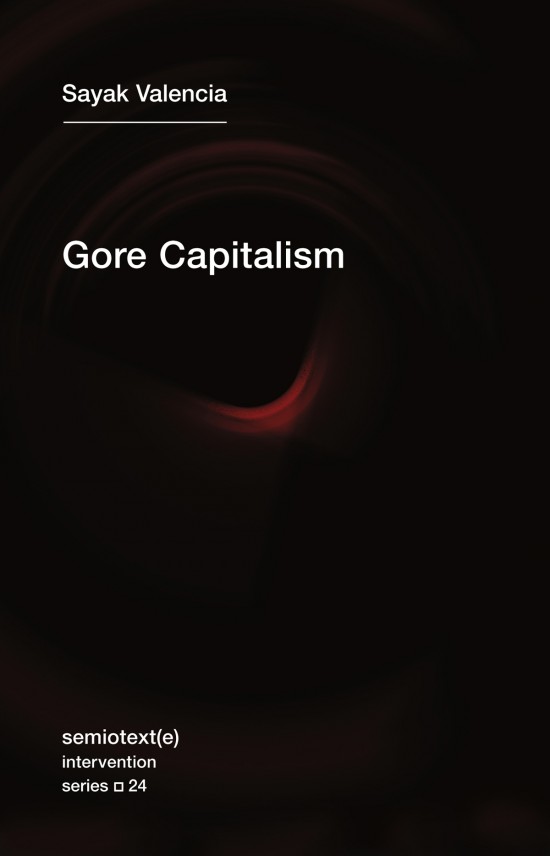Boris Arvatov: Art and Production (1926–) [Russian, English]
Filed under book | Tags: · art, capitalism, constructivism, everyday, production, productivism, proletariat, sculpture

“Boris Arvatov‘s Art and Production is a classic of the early Soviet avant-garde. Now nearing a century since its first publication, it is a crucial intervention for those seeking to understand the social dynamic of art and revolution during the period.
Derived from the internal struggles of Soviet Constructivism, as it confronted the massive problems of cultural transformation after ‘War Communism’, Arvatov’s writing is a major force in the split that occurred in the revolutionary horizons of Constructivism in the early 1920s. Critical of early Constructivism’s social-aesthetic process of art’s transformation of daily life – epitomised in studio-based painting, photography and object making – Arvatov polemicises for the devolution of artistic skills directly into the relations of production and the factory.
Whilst acknowledging the problems of a pure factory-based Productivism, Arvatov remains overwhelmingly committed to a new role and function for art outside the conventional studio and traditional gallery. Addressing issues such as artistic labour and productive labour, the artist as technician, art and multidisciplinarity and a life for art beyond ‘art’ – finding new relevance amidst the extensive social turn of contemporary participatory art – Art and Production offers a timely and compelling manifesto.”
Publisher Proletkult, Moscow, 1926
132 pages
English edition
Edited by John Roberts and Alexei Penzin
Introduction by John Roberts
Afterword by Alexei Penzin
Translated by Shushan Avagyan
Publisher Pluto Press, London, 2017
ISBN 9780745337364, 0745337368
160 pages
Reviews: Celluloid Liberation Front (Brooklyn Rail, 2017), Noel Halifax (Socialist Review, 2018).
Iskusstvo i proizvodstvo (Russian, 1926, 45 MB)
Art and Production (English, 2017, EPUB; PDF, added 2020-8-6)
Paul B. Preciado: An Apartment on Uranus: Chronicles of the Crossing (2019–) [FR, ES, EN]
Filed under book | Tags: · biography, body, capitalism, desire, diary, feminism, gender, necropolitics, politics, queer, queer theory, sexuality, theory, transgender, utopia

“A ‘dissident of the gender-sex binary system’ reflects on gender transitioning and political and cultural transitions in technoscientific capitalism.
Uranus, the frozen giant, is the coldest planet in the solar system as well as a deity in Greek mythology. It is also the inspiration for uranism, a concept coined by the writer Karl Heinrich Ulrich in 1864 to define the “third sex” and the rights of those who “love differently.” Following Ulrich, Paul B. Preciado dreams of an apartment on Uranus where he might live beyond existing power, gender and racial strictures invented by modernity. “My trans condition is a new form of uranism,” he writes. “I am not a man. I am not a woman. I am not heterosexual. I am not homosexual. I am not bisexual. I am a dissident of the gender-sex binary system. I am the multiplicity of the cosmos trapped in a binary political and epistemological system, shouting in front of you. I am a uranist confined inside the limits of technoscientific capitalism.”
This book recounts Preciado’s transformation from Beatriz into Paul B., but it is not only an account of gender transitioning. Preciado also considers political, cultural, and sexual transition, reflecting on issues that range from the rise of neo-fascism in Europe to the technological appropriation of the uterus, from the harassment of trans children to the role museums might play in the cultural revolution to come.”
French edition
Preface by Virginie Despentes
Publisher Bernard Grasset, Paris, 2019
ISBN 9782246820666, 2246820669
334 pages
Spanish edition
Introduction by Virginie Despentes
Publisher Anagrama, Barcelona, 2019
ISBN 9788433998767, 8433998765
309 pages
English edition
Foreword by Virginie Despentes
Translated by Charlotte Mandell
Publisher Semiotext(e), South Pasadena, CA, 2020
ISBN 9781635901139, 1635901138
263 pages
Reviews: Eugénie Bourlet (En attendant Nadeau, 2019, FR), Kevin Lambert (Spirale, 2020, FR), Pierre Niedergang (Diacritik, 2019, FR), Thomas Liano (French Studies, 2020, FR), Bernabé Sarabia (El Cultural, 2019, ES), Emilia Holstein (Feminacida, 2020, ES), Alexandra Marraccini (review31, 2020), Megan Milks (4Columns), Bryony White (Frieze, 2020), Kevin Brazil (ArtReview, 2020).
Publisher (FR)
Publisher (ES)
Distributor (EN)
WorldCat (EN)
Un appartement sur Uranus: chroniques de la traversée (French, 2019, MOBI, updated on 2021-4-13)
Un apartamento en Urano: crónicas del cruce (Spanish, 2019, updated on 2021-4-13)
An Apartment on Uranus: Chronicles of the Crossing (English, trans. Charlotte Mandell, 2020)
Sayak Valencia: Gore Capitalism (2010–) [ES, EN]
Filed under book | Tags: · capitalism, death, feminism, necropolitics, neoliberalism, politics, violence

“Death has become the most profitable business in existence.”—from Gore Capitalism
“Written by the Tijuana activist intellectual Sayak Valencia, Gore Capitalism is a crucial essay that posits a decolonial, feminist philosophical approach to the outbreak of violence in Mexico and, more broadly, across the global regions of the Third World. Valencia argues that violence itself has become a product within hyper-consumerist neoliberal capitalism, and that tortured and mutilated bodies have become commodities to be traded and utilized for profit in an age of impunity and governmental austerity.
In a lucid and transgressive voice, Valencia unravels the workings of the politics of death in the context of contemporary networks of hyper-consumption, the ups and downs of capital markets, drug trafficking, narcopower, and the impunity of the neoliberal state. She looks at the global rise of authoritarian governments, the erosion of civil society, the increasing violence against women, the deterioration of human rights, and the transformation of certain cities and regions into depopulated, ghostly settings for war. She offers a trenchant critique of masculinity and gender constructions in Mexico, linking their misogynist force to the booming trade in violence.
This book is essential reading for anyone seeking to analyze the new landscapes of war. It provides novel categories that allow us to deconstruct what is happening, while proposing vital epistemological tools developed in the convulsive Third World border space of Tijuana.”
Publisher Melusina, Barcelona, 2010
ISBN 8496614875, 9788496614871
240 pages
English edition
Translated by John Pluecker
Publisher Semiotext(e), South Pasadena, CA, 2018
Intervention series
ISBN 9781635900125, 1635900123
330 pages
Reviews: Gabriela Wiener (El País, 2010, ES), Elisa G. McCausland (Profesiones, 2010, ES), Elena Cabrera (DT, 2011, ES), Sergio Gonzalez Rodriguez (Reforma, 2011, ES), Hilda Mariela Barbosa Suarez (Tribuna de Querétaro, 2011, ES), Ignacio Sánchez Prado (ARTMargins, 2018), Richard Marshall (3:AM Magazine, 2018), Rose Deller (LSE Review of Books, 2018), Abeyamí Ortega (Social Text, 2019), Anastasia Baginski (Chasquí, 2019).
Publisher (ES)
Distributor (EN)
Translator (EN)
WorldCat (EN)
Capitalismo gore (Spanish, 2010)
Gore Capitalism (English, 2018)

